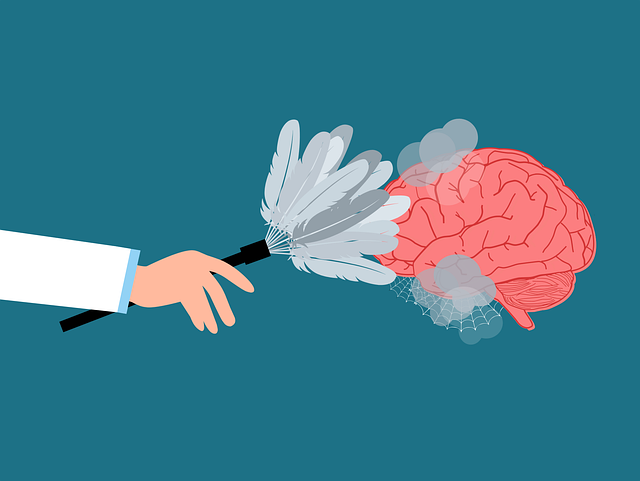In Littleton, crisis intervention skills are vital for assisting individuals with Oppositional Defiance Disorder (ODD). This involves strategies like Social Skills Training, Anxiety Relief, and Conflict Resolution to manage distress. Recognizing ODD signs, such as temper tantrums and rule defiance, is crucial. Specialized therapy offers a supportive environment, focusing on building resilience through self-care and reducing mental illness stigma. Holistic treatment combines evidence-based practices like CBT with mindfulness training, aiming to reduce symptoms and develop healthier coping mechanisms. Robust support systems, including family and community resources, are key for effective crisis navigation, incorporating tailored strategies into daily lives to enhance emotional regulation.
In today’s challenging social landscape, effective crisis intervention strategies are essential. This article guides you through a comprehensive approach to understanding and managing crises, with a specific focus on Littleton Oppositional Defiance Disorder (ODD) therapy. From recognizing ODD symptoms in children to implementing evidence-based strategies, we offer practical insights. Additionally, we explore the significance of building robust support systems, emphasizing family and community engagement in the therapy process. Discover how these techniques can revolutionize crisis management, particularly in the context of Littleton ODD therapy.
- Understanding Crisis Intervention: A Fundamental Approach
- Recognizing Signs: Identifying Oppositional Defiance Disorder (ODD) in Children
- Effective Strategies for Littleton ODD Therapy
- Building Support Systems: Family and Community Engagement
Understanding Crisis Intervention: A Fundamental Approach

Crisis intervention is a crucial skill set for professionals working with individuals experiencing emotional or behavioral distress. It involves immediate and targeted support to help people cope with overwhelming situations, often preventing escalation or potential harm. At its core, crisis intervention focuses on safety, stability, and building hope during times of crisis, be it a sudden traumatic event or long-term challenges like Oppositional Defiance Disorder (ODD).
In the context of ODD, a common childhood behavioral disorder characterized by frequent arguments with authority figures, therapists in Littleton may employ tailored strategies. This could include Social Skills Training to enhance communication and interaction, thereby reducing conflicts at home and school. Anxiety Relief techniques, such as mindfulness practices, can help individuals manage intense emotions during crises. Additionally, teaching Conflict Resolution Techniques empowers those with ODD to navigate challenging situations more adaptively, fostering better relationships and a sense of control.
Recognizing Signs: Identifying Oppositional Defiance Disorder (ODD) in Children

Recognizing the signs of Oppositional Defiance Disorder (ODD) in children is a crucial first step towards effective crisis intervention and guidance. ODD, characterized by persistent anger, irritability, defiant behavior, and argumentativeness, can manifest in various ways. Parents, caregivers, and educators play a vital role in identifying these subtle cues, such as frequent temper tantrums, defiance of rules, and aggressive language, which may indicate an underlying mental health challenge. In Littleton, Oppositional Defiance Disorder therapy offers a supportive environment to address these behaviors.
Building resilience is key to managing ODD. Encouraging self-care routine development for better mental health can empower children to cope with their emotions. Mental illness stigma reduction efforts are also essential, fostering an understanding and accepting atmosphere that encourages open communication about challenges, ultimately leading to more effective crisis intervention strategies.
Effective Strategies for Littleton ODD Therapy

Effective Strategies for Littleton Oppositional Defiance Disorder (ODD) Therapy
When it comes to addressing Oppositional Defiance Disorder in Littleton, a multifaceted approach is often most beneficial. The goal isn’t merely to suppress symptoms but to help individuals develop healthier coping mechanisms and improve their overall well-being. One successful strategy involves integrating evidence-based practices tailored to the unique needs of each client. For instance, cognitive-behavioral therapy (CBT) has proven effective in teaching individuals to recognize and modify negative thought patterns and behaviors. By replacing oppositional responses with more adaptive ones, CBT empowers clients to manage their emotions more effectively.
Stress reduction methods and anxiety relief techniques play a crucial role in ODD therapy. Mindfulness training, relaxation exercises, and stress management workshops within the organization can help individuals regulate their emotional responses and reduce impulsive behavior. Additionally, family therapy sessions foster better communication and understanding, creating a supportive environment at home which reinforces positive behavioral changes.
Building Support Systems: Family and Community Engagement

In crisis intervention, building robust support systems is paramount. Family and community engagement plays a crucial role in effective crisis management and recovery. When facing challenges like Oppositional Defiant Disorder (ODD), which often manifests as emotional dysregulation and problematic behavior, a collaborative approach becomes essential. Engaging family members and community resources can provide a network of support that goes beyond traditional therapy settings, such as Littleton Oppositional Defiance Disorder Therapy.
This strategy fosters an environment conducive to learning and growth by implementing communication strategies and stress management techniques. By integrating these skills into daily routines, individuals with ODD can improve emotional regulation, enhancing their ability to navigate crises more effectively. Community engagement also provides access to diverse perspectives and resources tailored to meet specific needs, ensuring a holistic approach to crisis intervention.
Crisis intervention strategies, especially tailored for Littleton Oppositional Defiance Disorder (ODD) therapy, involve a multifaceted approach. By recognizing the signs of ODD early and engaging family and community support systems, we can significantly enhance the effectiveness of treatment. Building a strong support network not only benefits the child but also fosters their long-term mental health and well-being. These strategies, when implemented with care and guidance, have the potential to revolutionize how we navigate and resolve crises related to ODD.














